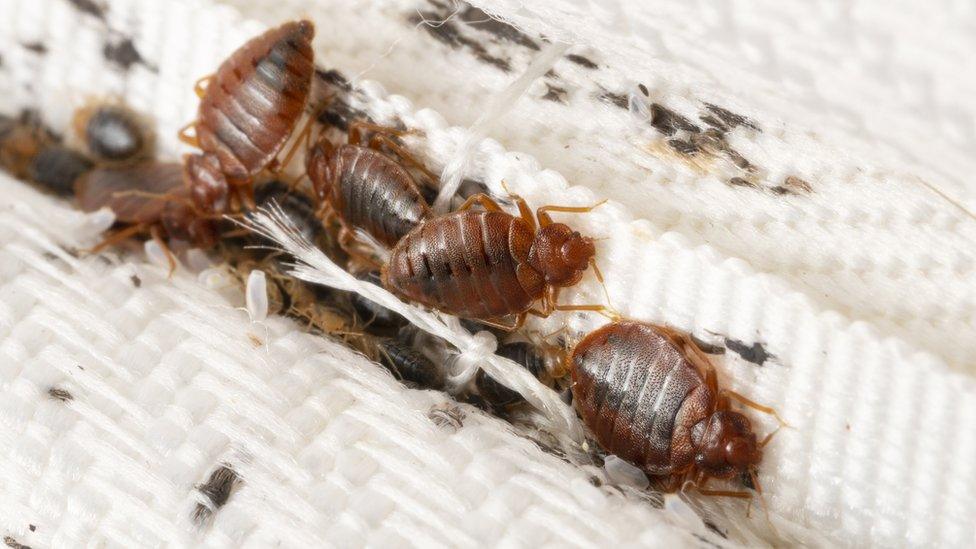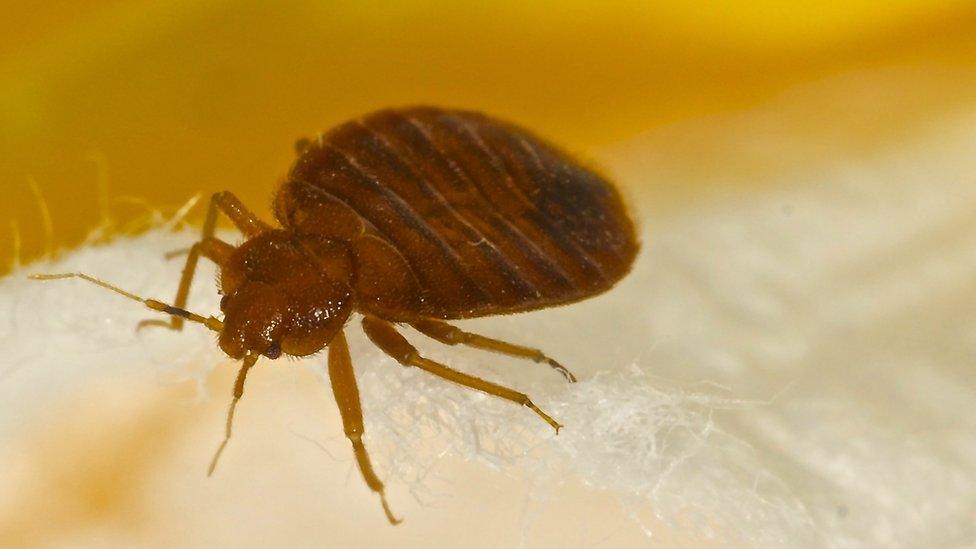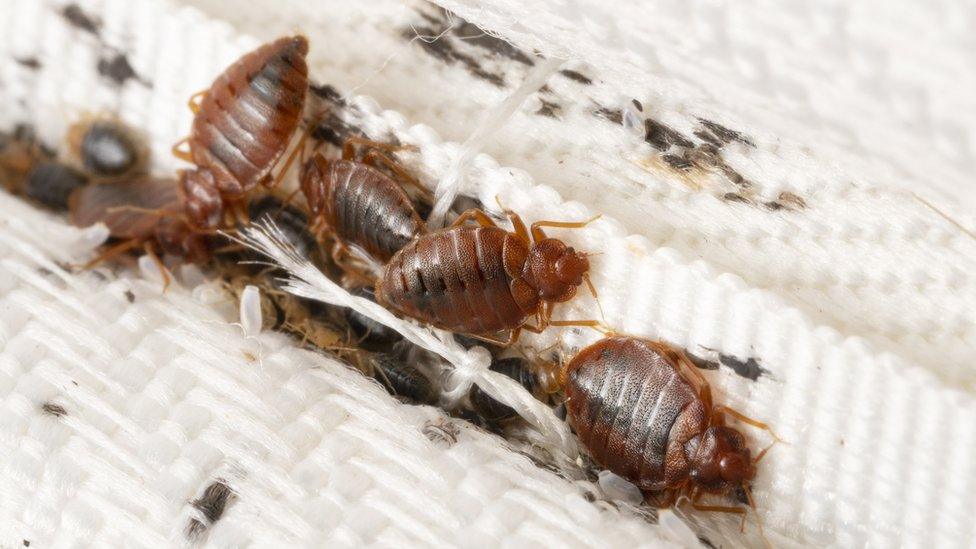'I've suffered from bedbugs for two years'
- Published

An apparent infestation of bedbugs in France in recent weeks has led to concerns the insects could be making their way to the UK - but, experts warn, they have been here all along.
"I wish I knew nothing about them," says Mike Jones.
Mr Jones admits to being a reluctant authority on bedbugs, having dealt with them for the past two years at his home in Sheffield.
It began when he received some second-hand furniture from a neighbour. Shortly after, he spotted what he thought was mould on his wooden bed frame and found small insects in his bed.
A search online told him they were bedbugs and the specks of "mould" were their faeces.
Since then, he has tried many different measures to try to get rid of them, spent considerable sums of money and "watched 50 to 100 hours of videos" - all without success.
He started by removing items from under his bed - bedbugs cannot jump or fly, so usually attach themselves to items to crawl up bedposts - before bringing in professional pest controllers who have used insecticides and sprays.
"I've got an exterminator coming in tomorrow to do another set of sprays," he told the BBC on Friday.
It has also got expensive.
"You're probably looking at over £1,000 - and then there is the stuff I've thrown away," he said when asked how much he has spent.
Mr Jones accepts that bedbugs can be viewed as a "minor inconvenience" but said the bites in particular are an irritant.
"No-one wants bugs crawling all over them - it's a bit weird, especially if they're crawling on your face. And bite marks aren't nice. They don't look nice, they don't feel nice," he said.
They have also inconvenienced him in other ways.
Not wanting to pass on an infestation, he refuses to stay at other people's houses and if he goes to a hotel he puts all his items in thick plastic bags.
"It's about being as careful as possible to make sure I don't pass them on," he said.
A long presence in the UK
The issue has been in the news in recent weeks, particularly as an infestation has reportedly reached Paris and other French cities.
This has caused concern among some that the bugs could be on their way to the UK.
However, in reality, they have been here all along.
Bedbugs have been feeding off humans for thousands of years, probably since "humans were still living in caves", said Dr Richard Naylor, an entomologist specialising in bedbug biology and behaviour.
In the 1930s, bedbugs were so widespread they were found in "virtually every house in London", he said.
Although the introduction of new insecticides saw their numbers plummet in the post-World War Two period, they witnessed a resurgence in the 1990s and the early years of the 21st century.
That slowed with the Covid lockdown, which removed an "important bedbug dispersal route", Dr Naylor said.
They are yet to reach their pre-pandemic levels but have remained an issue in apartment blocks and sheltered housing complexes.
Bedbugs are a global problem and thrive "anywhere there is high human population density", Dr Naylor said.
Despite their widespread presence, their risk to human health is low.
"Some people react to the bites, which can be very itchy, and there may be painful swelling," said Natalie Bungay, from the British Pest Control Association.
"A severe allergic reaction (anaphylaxis) is also possible but rare. Bed bugs can harbour various pathogens but transmissions to humans has not been proven and is believed to be unlikely," she said.
Watch: BBC correspondent Hugh Schofield goes on the hunt for Paris bedbugs
The term "bedbug" can, in fact, be misleading. As well as mattresses, they can also be found on clothing, furniture, plane seats and cinema seats - in short, anywhere people spend many hours a day sitting still.
"Bedbugs are mainly active at night. They come out, forage around, feed and then find somewhere to hide nearby," Dr Naylor said.
They also aggregate and produce a pheromone so they can find each other.
As a result they can be difficult to get rid of.
Steps can be taken to prevent their presence, including regular cleaning, closely checking second-hand furniture before bringing it home, and avoiding putting luggage directly on beds or furniture.
However, Dr Naylor said that if bedbugs have spread to multiple beds in the same property then it "is probably time to call a professional".
Mr Jones also has some words of warning. He said it is important not to leave clutter under beds, as well as to remain alert to their potential presence.
He also cautioned against sleeping in different rooms.
"That just spreads the problem around, as they're pretty good at finding their way to you," he said.
- Published5 October 2023

- Published5 October 2023
